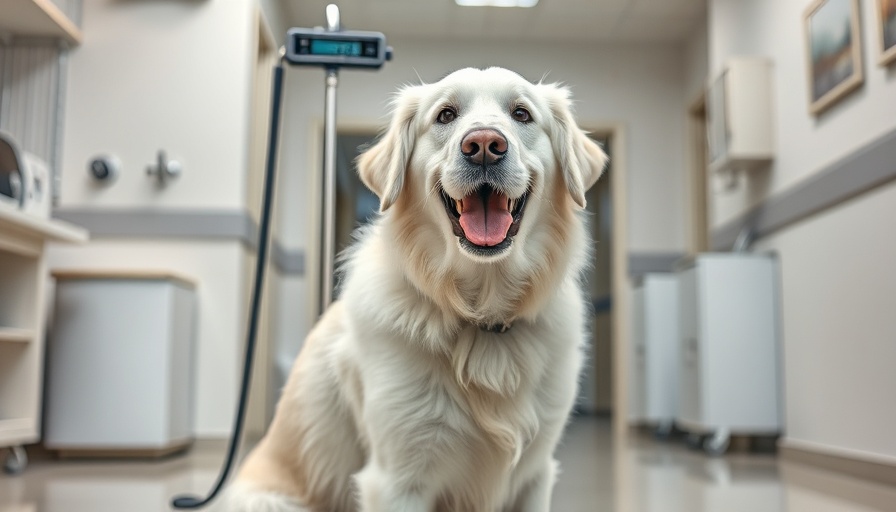
Understanding Canine Obesity and Its Implications
Obesity is a pervasive issue that impacts not only humans but also our beloved pets. With a staggering 59% of dogs in the U.S. classified as overweight or obese, this problem calls for urgent attention from pet owners. Obesity in dogs can lead to severe health complications, such as diabetes, joint issues, and heart disease, leading to decreased life expectancy. As a responsible pet parent, understanding the importance of maintaining a healthy weight for your dog is the first step to ensuring their long-term well-being.
Crafting a Vet-Recommended Diet Plan
The journey to a healthier weight for your dog often starts with a vet-recommended diet. These specialized diets are designed to be lower in calories while still being rich in essential nutrients, mainly fiber, to support digestion during the weight loss process. In consultation with your veterinarian, you can identify a suitable diet that accounts for any individual health concerns your pet might have.
Measuring your dog's food accurately is critical in their weight loss journey. Using a kitchen scale or measuring cups can prevent overeating, which is especially crucial for smaller breeds that might not require as much food. Remember, a small portion can dramatically impact their progress towards a healthier weight.
Calorie Monitoring: The Key to Success
Beyond controlling food portions, monitoring calorie intake—including treats—is vital to your dog's weight loss success. Treats, while a wonderful way to bond with your pup, can quickly add up to excess calories. Your vet may suggest limiting treats during this period or substituting them with healthier options like baby carrots or green beans. Keeping a log of what your dog eats and the caloric breakdown can help maintain accountability and progress!
Utilizing Weight Management Supplements Wisely
In addition to dietary adjustments, weight management supplements can enhance your dog’s ability to shed pounds. Supplements like Zesty Paws Vet Strength Weight Management Bites offer inulin, a type of fiber that promotes a feeling of fullness, along with B-vitamins to help maintain a healthy metabolism. These supplements can play a supportive role alongside a proper diet and exercise routine.
Incorporating Exercise into Daily Routines
Alongside dietary changes, exercise is a fundamental component in supporting your dog’s weight loss journey. Engaging in regular physical activity not only helps burn calories but also strengthens the bond between you and your furry friend. Whether it’s a daily walk around the neighborhood, playing fetch at the park, or trying out dog sports like agility, the goal is to make exercise an enjoyable part of your dog’s routine.
Future Insights: The Lifelong Commitment to Health
Helping your dog lose weight is a journey that takes time, patience, and consistency. It’s essential to remember that your efforts will lead to improved health and a happier, more active companion. Maintaining a healthy weight is not just about short-term goals; it’s about setting the foundation for a long, fulfilling life together.
Join the Movement: Let's Combat Canine Obesity Together!
As we combat the challenge of canine obesity together, remember that you’re not alone. Many pet owners are in the same boat, navigating the complexities of weight management for their dogs. Sharing stories and tips with fellow pet parents can lighten the burden and strengthen the community bonds that support responsible pet ownership.
Let’s celebrate the small achievements along the way, whether it's successfully cutting down on treats or enjoying a new activity together. Your commitment plays a significant role in not only transforming your dog's life but can also inspire others in your community!
 Add Row
Add Row  Add
Add 


Write A Comment